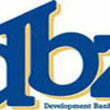MINISTRY of Finance Permanent Secretary in charge of Economic Management and Finance Mukuli Chikuba has told the parliamentary committee on parastatal bodies that the National Savings and Credit Bank (NATSAVE) has come up with a plan to recover defaulted loans.
The Auditor General’s report on accounts of parastatal bodies for the financial year ended 31st December 2013, 2014, 2015, and 2016 revealed that the National Savings and Credit Bank (NATSAVE) had failed to recover loans in amounts totaling to K2, 911, 676 from various customers.
The AG report during the period under review further observed that the recoveries of the said money from various customers had not been effected as of July 2017.
Responding to the audit queries before the committee, Chikuba said out of the 319 defaulting accounts from the head office, 91 had paid off the debt, 210 were remitting while 18 were not but are actively being pursued.
“I note the auditor’s observation. However, you may wish to know that measures have been put in place to ensure that customers in question start servicing their loans accordingly. Most of the loans involved are now performing with some paid off, and recoveries are being made on accounts monthly. Out of a total 319 accounts, 91 are paid off, 210 are remitting recoveries while 18 are not remitting recoveries but are actively being pursued,” Chikuba said.
The Auditor General’s report also observed that the bank under review did not remit Pay As You Earn (PAYE) to the Zambia Revenue Authority (ZRA) amounting to K8, 087, 161 despite deducting it from its employees’ remuneration.
Chikuba then said: “I wish to state that following the failure of the earlier agreements, management has been in talks with ZRA and asked for up to 28th February, 2018 to prepare an interim Turnaround Plan for the bank, after which, a fresh Time to Pay Agreement (TPA) will be entered into.”
Meanwhile, during the period under review, the auditors further observed that 11 NASAVE employees who were based in towns not designated as rural areas were irregularly paid hardship allowances amounting to K68, 677.
But chikuba said some anomalies were caused by delayed movement of staff who had been transferred in some areas, among others.
“I wish to state that some anomalies were caused by (a) delayed movement of staff who had been transferred in some areas, among others; (b) the conditions of service specified the towns that were regarded as rural but an addendum should have been prepared when new branches were opened in rural areas, which was not done; and (c) management has however increased oversight on the payroll functions to avoid future lapses and records are being checked to identify the individuals involved and effect recoveries. The conditions of service have been amended to read as follows: ‘Rural areas’ shall mean all towns in Zambia other than Provincial Headquarters, Copperbelt, towns, and towns along the line of rail,” responded Chikuba.
And in conclusion, Committee Chairperson Peter Daka urged the controlling officer to return with zero audits in the next report.












